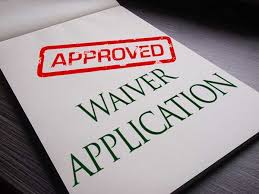Immigration News & Updates eNewsletter
eNewsletter
POSTING DATE: DECEMBER 5, 2016
Learn More About:
Immigration News & Updates eNewsletter © 2011 - 2016
For questions about U.S. Residency, Green Cards and Immigration Visas, Visit our Website at: www.ImmigrateToday.com or call our office at: (954) 382-5378
Check Out This Cool Stuff For Immigrants....
Immigration
Questions & Answers
Question: I just finished reading your newsletter about "More Bad News For Immigrants..." and "Tips On Surviving This New "Trump" Anti-Immigrant Era". Well, my daughter, 16 years old, was born in the US in the year 2000 and she's an american citizen. Back on that time I was working there under H1-B visa status. We left the U.S. and are living in Brazil. I'd like to know if my daughter is at risk of losing her US citizenship and if there's anything we should do now to avoid this. I thank you very much for your response.
This Week's Immigration News
Possible Trump Immigration Crack-down Leads More Immigrants To Apply For Provisional Waivers
With Immigration crack-down promised by the Trump Administration looming ahead in 2017, Immigrants are scrambling to apply for Immigration programs and for some who qualify, Waivers. Recently the Obama Administration dramatically expanded eligibility for qualifying sponsored family members who are in the U.S. with expired immigration status, to obtain residency after receiving a “Waiver” (called provisional unlawful presence waiver, or Provisional Waiver).
Until recently, the existing program only allowed “Immediate Relatives” to qualify for the Waiver. Now, eligible family members include Parents, Spouses, Single and Married Children and Siblings of U.S. Citizens and Spouses and Single Children of U.S. Residents.
For background, generally, Immigrants who stay in the U.S. unlawfully for more than 6 months are then barred from returning to the U.S. for 3 years and those who stay for one year or more are barred for 10 years after they depart. In such cases, these Immigrants are ineligible to immigrate to the U.S. due to the “bar”, without an approved “Waiver” which is like forgiveness from the U.S. government. In the past, family members applying for such waivers were required to leave the U.S. and apply for the Waiver abroad. Under the current policy, Waivers can be submitted while the Immigrant family member remains in the U.S., then once the Waiver is approved, they can then safely leave the U.S. and receive an Immigrant Visa from the Consult to reenter the U.S. and obtain Residency.
To qualify for these Waivers, Applicants must have an approved I-130 immigrant petition with a current “priority date” and submit a formal application to prove that denial of an Immigrant Visa would result in “extreme hardship” to a U.S. Citizen or U.S. Resident who sponsored them. The Waiver request requires extensive documentation and professional preparation to establish eligibility for approval. Its important to remember that Immigrants in the U.S. with approved I-130 petitions, but which have not yet reached the priority date are not eligible for the Waiver until their priority date becomes current.
So be sure to have a qualified Immigration attorney verify that your “priority date” is currently, before going through the costly Waiver process.
Find out more about Waivers by calling our office at: 954-382-5378
New USCIS Naturalization Guide Available
The USCIS has updated its Naturalization Guide to include updated information about Naturalization eligibility and requirements.
Check out the new USCIS Naturalization Guide:
Answer: That’s a great question. If U.S. Birthright Citizenship were abolished, it would not be retroactive, meaning that it would only apply to children born in the U.S. AFTER the law is changes, in the future. It would not apply to children born in the U.S. up to that point. Birthright Citizenship is governed by the Fourteenth Amendment to the U.S. Constitution. To change it, would mean amending the Constitution, which may or may not be possible. However, many Republicans believe that Congress can pass a Bill clarifying the 14th Amendment to interpret it as not giving automatic U.S. Citizenship to all children born in the U.S.. Legal scholars disagree and say that if that occurred, the Supreme Court would need to weigh in. The fear among Immigration experts, however, is that once Trump appoints a conservative Supreme Court Judge, the Supreme Court may in fact rule in Congress’s favor on the issue. So in your daughter’s case, don’t worry, she is a U.S. Citizen now and forever!
Immigration How To:
How Do I Replace My Lost I-94 Card?
Up Coming Naturalization Ceremonies Announced
For Some USCIS South Florida Locations
Miami Field Office – December 16
Hialeah Field Office – December 10 and 17
Kendall Field Office – December 9 and 16
Oakland Park Field Office – December 9 and 16
Question: Hi Caroly, How are you doing? It's been a while. I have a question on multiple filings. My wife's sister is a US citizen. The sister filed for my wife in October 2015. My wife's mom will most likely get her citizenship by December. Her final interview is this week. Should my wife's mom also file for her? It would be the Preference 3 vs Preference 4 category but the time difference of one year (The sister filed for my wife in Oct 2015) should make the waiting times just about equal. Is there any rule against (multiple filing) that says that because the sister filed for my wife, then my wife's mom cannot file for her also?
Answer: Nice to hear from you. The F4 sibling of U.S. Citizen Immigrant Visa take about 12-14 years. The F3 for adult married child of U.S. Citizen Immigrant Visa is about 10-12 years. Your mom can certainly sponsor you, no problem. There is no limit to the number of Immigrant visa petitions that can be filed on your behalf by family members, including U.S. Citizen parents and brothers and sisters. In fact, each parent could file for her, as well as each sibling! I hope this is helpful.
Helpful Immigration Tips You Can Use
What Happens After Your Immigration Application Is Filed?
Once the USCIS receives your Immigration application, it issues a receipt, called the I-797 Notice of Action for whatever case type relates to your application in about 7-10 days. For instance, if you filed your application for Adjustment of Status (I-485), along with your application for Employment Authorization (I-765), the USCIS will issue two receipts, one for the I-485 and one for the I-765.Make sure to copy your receipts and keep the originals in a safe place.
Each receipt has a case number, located under the notice date in the upper left hand side of the receipt. This case number allows you to track the status of your case on the USCIS website and to receive email updates on your status. So be sure to sign up for USCIS case status updates called My USCIS Case.
If you applied for adjustment of status, work authorization, Naturalization, DACA, Green Card renewal or related applications, you will also be issued a Biometrics Appointment Notice within about 30 days for you to go to the USCIS office and have your fingerprints taken. . Once your case is approved, you will again receive the I-797 Notice of Action Approval for the related case. If you feel you are having problems with your case or have not received one or more receipts related to your case, you can call the USCIS at: 1 (800) 375-5283. Make sure to document the date of your call and get a reference number in case you need to call again on the same issue.
Replacing a Lost Arrival/Departure I-94 Card
An I-94 is a small slip of paper which was, until recently issued to all international visitors and visa holders entering the U.S.. Officially called the Arrival/Departure card, the I-94 contained the date of entry into the U.S. as well as the date by which the individual must depart from the U.S.. Often, individuals do not understand how important this little card is until it is too late.
In order to change immigration status inside the U.S. to any other immigrant or non-immigrant visa status, immigration regulations require that a copy of the I-94 be included with the application to establish eligibility.
Foreign nationals must prove that they entered the U.S. legally and were inspected by an immigration officer in order to qualify to file for immigration status in the U.S.. Those who did not enter the U.S. legally are generally not entitled to obtain any new immigration status in the U.S., even when married to a U.S. citizen unless a Waiver is obtained.
If your I-94 card is lost, stolen or seriously damaged, you can apply to replace it by filing Form I-102, Application for Replacement/Initial Arrival-Departure Document. You also may file Form I-102 if you wish to receive a replacement I-94 card with corrected information on it — for example, if the immigration officer spelled your name wrong on the initial I-94 card. The nonrefundable filing fee for Form I-102 is $330. It generally takes about 60 days to receive the I-94 replacement card in the mail.
Under the new electronic I-94 system implemented in 2013, international visitors are no longer issued paper I-94 cards upon entry into the U.S.. Instead, individuals are provided with instructions on accessing their I-94 records online and printing the I-94 card out from the U.S. Customs and Border Protection (CBP) agency. You can visit the CBP site to print out your paper I-94 cards:












